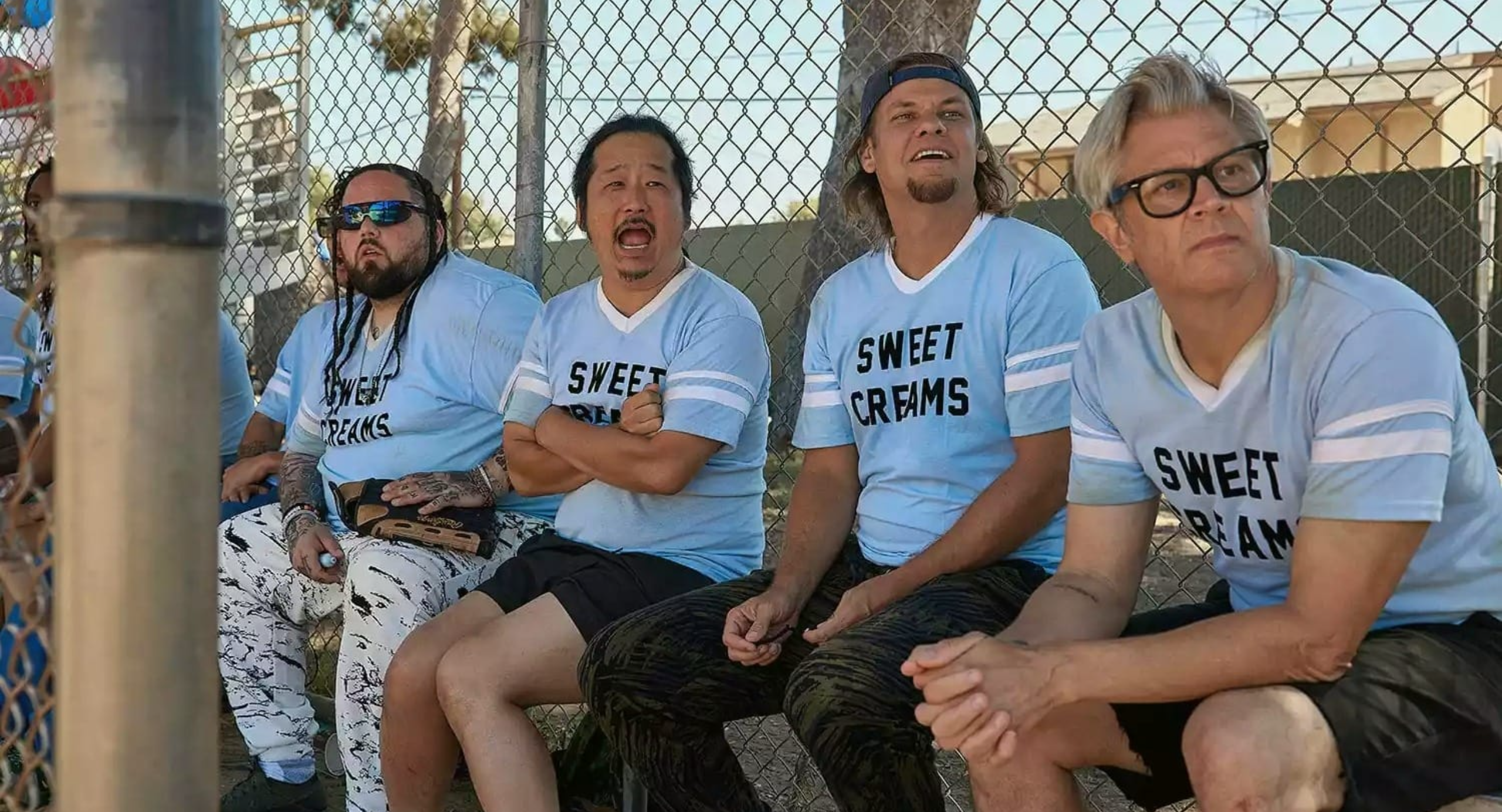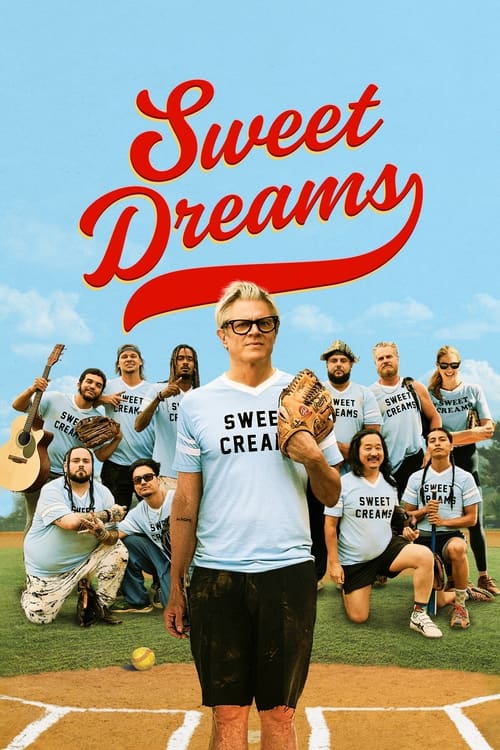Sweet Dreams – Film Review
Published April 17, 2024

Sweet Dreams directed and written by Lije Sarki is a unique comedic venture that throws light on the often-neglected narratives surrounding sobriety, addiction, and the personal growth that accompanies the journey to recovery. The premise alone—a mix of quirky humor, personal development, and sports comedy—makes for an interesting pitch. Set within the confines of the Sweet Dreams sober living house, the film follows Morris (played by Johnny Knoxville) who, in a bid to reconstruct his life, ends up coaching a misfit softball team composed of his fellow housemates.
Knoxville, known for his daring stunts and outrageous antics in Jackass, takes on a slightly different role here. While traces of his well-loved comedic style are present, he presents a more subdued, nuanced portrayal of Morris. His performance encapsulates the struggle of a man striving for redemption, balancing it with moments of vulnerability and understated humor. Opposite him, Bobby Lee brings a heartwarming performance as Cruise, adding depth to the ensemble with his impeccable timing and delivery. Jay Mohr‘s Frank, Kate Upton‘s Kat, and Brian Van Holt‘s Mike D round off the main cast, each contributing their quirks to the team’s dynamic, although their characters beg for more development and depth.
The humor in Sweet Dreams treads a fine line, leaning heavily on the personal shortcomings and the shared journey of its characters. Sarki’s direction showcases an intimate understanding of the subject matter, infusing the script with genuine moments that resonate with anyone familiar with the trials and tribulations of recovery. However, it is in this tightrope walk that the film sometimes falters, teetering between exploring profound themes and dipping into the well of cliché sports comedy tropes.
Cinematographically, the film delivers a compelling visual narrative. Sarki, alongside the director of photography, captures the essence of life within the Sweet Dreams house through a lens that is both raw and vibrant. The visuals offer a contrasting backdrop to the residents’ battles, highlighting moments of triumph and defeat, both on the softball field and in their personal lives. Yet, despite these aesthetic achievements, the film’s pacing seems uneven, oscillating between high-octane comedic scenes and introspective moments that, though meaningful, sometimes slow down the narrative progression more than they ought.
The softball subplot, meant to be the vehicle driving the residents towards unity and personal growth, at times, feels predictable. While sports underdog stories are a tried and true formula, Sweet Dreams struggles to bring anything new to the field. This isn’t to say that the journey isn’t enjoyable—watching this band of misfits find solace, laughter, and camaraderie in each other’s company is both entertaining and heartwarming. However, the film often relies on stock characters and expected plot twists, missing opportunities to dive deeper into the complexities of its main premise.
Soundtrack and score are pivotal elements that underscore the film’s shifting moods, from the exuberance of a hard-won match to the introspection of personal battles fought off the field. Here, Sarki makes astute choices, blending a mix of upbeat tracks with more subdued, thoughtful scores that reflect the film’s tonal shifts. It’s an effective method of engaging the audience, creating an auditory landscape that complements the visual storytelling.
The film’s strongest suit is perhaps its unabashed honesty in depicting the realities of sobriety and the often rocky road to recovery. In moments where Sweet Dreams dares to strip back the layers of humor, it reveals a poignant look at the human condition, exploring themes of hope, resilience, and redemption. These flashes of vulnerability are where the characters become their most relatable, pulling the audience into their world with an unspoken promise of shared laughter and mutual tears.
Despite its earnest attempt, Sweet Dreams does not quite hit the home run it aspires to. While its heart is in the right place, the execution wavers, hamstrung by genre constraints and a script that occasionally meanders into the realm of predictability. The performances, particularly from Knoxville and Lee, shine through, giving the film moments of brilliance that almost manage to elevate it beyond its shortcomings.
Sweet Dreams is a commendable effort by Sarki to blend comedy, sports, and drama into a narrative that speaks to the redemptive power of community and the inner strength required for personal transformation. While it may not reinvent the wheel in terms of storytelling or cinematic technique, it provides enough laughs, poignant moments, and softball antics to make for a pleasant viewing experience. It’s a solid base hit, even if it doesn’t quite clear the outfield fence.
